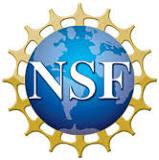Digitization of the scientific literauture has occurred in two phases: first, scientific papers began to be digitized, and second, comprehensive search engines such as Google Scholar, JSTOR and Web of Science emerged that allow scholars to quickly search for and locate published research. Most scientists now access the literature through online search engines and digital libraries, and rare is the scientist who walks to the library and peruses the journal shelves for new papers. These new algorithmic search engines thus provide scholars with a new lens into the published scientific literature, and this project aims to better understand the implications of these technological changes on the practice of scientific discovery and information dissemination. The project investigates whether these new tools are increasing access to a wider range of prior literature and thereby democratizing science, or instead concentrating scholars' gaze onto an ever smaller set of "star" papers. If the new tools are truly making the widest range of scientific literature more accessible, it certainly has implications for the prospects for scientific discovery, since scientists are able to consider and engage with all relevant prior work, a critical ingredient for high quality scientific activity. On the other hand, evidence from other contexts suggests that the availability of massive amounts of information puts new pressure on searching and filtering processes. If this occurs in science it could mean that scientists increasingly rely upon more concentrated subset of papers that appear at the top of search results, thereby creating an echo chamber in science with unintended effects on scientific careers and potentially negative downstream impacts on scientific innovation.
This research addresses these critical questions primarily via statistical analyses of comprehensive citation data from JSTOR and the Web of Science. The research focuses on the extent of citation concentration within and across disciplines; and the role of journals in an article-based search environment. Citation patterns have changed dramatically in the wake of the digital transition, becoming both more concentrated and more vulnerable to cumulative advantage processes. The population-level analyses are augmented by observational data describing how scientists actually interact with information technologies and academic recommender systems in the course of their scientific practice. This combination of methods links processes at the individual and population levels over time, and emphasizes the downstream impacts of information retrieval and citation on scientific innovation and career trajectories. A critical policy related implication is that online recommender systems can bias search results and thus the visibility of specific scientific findings. This is relevant to the next generation of scientists using these search environments and those who evaluate scientists and their work.
